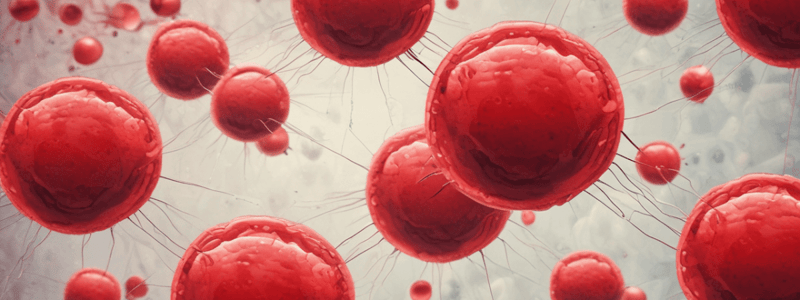Podcast
Questions and Answers
What is the main role of red blood cell antigens?
What is the main role of red blood cell antigens?
- Determine an individual's blood type (correct)
- Control oxygen transport in the bloodstream
- Stimulate antibody production in response to infection
- Promote blood circulation in the body
In the context of blood transfusion, what is the consequence of mismatched red blood cell antigens?
In the context of blood transfusion, what is the consequence of mismatched red blood cell antigens?
- Enhanced oxygen delivery to tissues
- Agglutination, causing blockage of small blood vessels (correct)
- Stimulation of white blood cell production
- Improved immune response
How does the immune system respond to foreign particles recognized as antigens?
How does the immune system respond to foreign particles recognized as antigens?
- It promotes clot formation
- It releases antibodies for specific immunity (correct)
- It triggers the release of enzymes for digestion
- It enhances oxygen exchange in the lungs
What happens if a person's antibodies recognize transfused red blood cells as foreign?
What happens if a person's antibodies recognize transfused red blood cells as foreign?
Why does agglutination of red blood cells pose a risk to the body?
Why does agglutination of red blood cells pose a risk to the body?
What determines your blood type according to the ABO blood group system?
What determines your blood type according to the ABO blood group system?
What happens if someone with type O blood receives a blood transfusion from a person with type A blood?
What happens if someone with type O blood receives a blood transfusion from a person with type A blood?
Why can't someone with type A blood receive blood from a type B donor?
Why can't someone with type A blood receive blood from a type B donor?
What is unique about the immune system response in individuals with AB blood type?
What is unique about the immune system response in individuals with AB blood type?
Why is type O blood considered the 'universal donor'?
Why is type O blood considered the 'universal donor'?
Flashcards are hidden until you start studying



